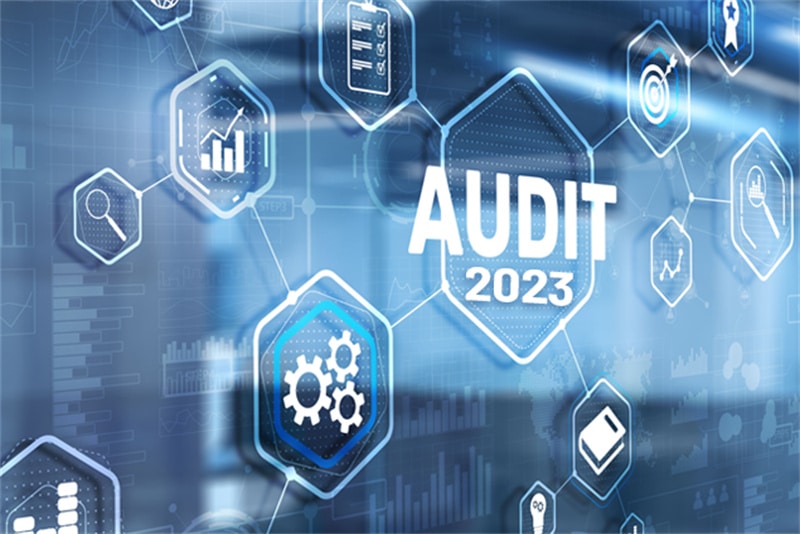
Oil trading operations are a critical component of the global energy sector, involving complex transactions worth billions of dollars.
Given the high stakes and potential for fraud and mismanagement, auditing plays a pivotal role in ensuring transparency, compliance, and accountability in this industry. This article delves into the world of oil trading operations, the challenges faced, and the essential auditing techniques employed to maintain integrity and efficiency. Transform your trading game and immerse yourself in our cutting-edge trading platform such as Oil Profit app.
Understanding Oil Trading Operations

Exploration and Production
Oil trading begins with exploration and production, where companies extract crude oil from reserves and resources beneath the Earth's surface. Exploration entails identifying potential oil deposits, while production involves drilling and extraction techniques.
- Oil Reserves and Resources: Oil reserves refer to known deposits that can be economically recovered, while resources encompass all potentially recoverable oil, including undiscovered deposits.
- Drilling and Extraction: The process of drilling and extracting crude oil involves various technologies and methods, depending on the location and geological characteristics of the oil field.
Refining and Processing
Once extracted, crude oil undergoes refining and processing to produce valuable products like gasoline, diesel, and petrochemicals.
- Crude Oil Refining:Refineries separate crude oil into its constituent parts through distillation and other refining processes.
- Product Development:Refined products are then further processed to meet specific market demands, including blending, chemical treatments, and quality control.
Key Players in Oil Trading
The oil trading ecosystem comprises several key players who participate in various stages of the supply chain.
- Oil Producers: Companies or nations that own and extract crude oil reserves.
- Refineries: Facilities responsible for converting crude oil into marketable products.
- Traders and Brokers: Intermediaries who buy and sell oil contracts, often speculating on price movements.
- End Users:Entities that consume oil products for various purposes, such as transportation, industrial processes, and heating.
- Regulatory Bodies: Government agencies and international organizations that oversee and regulate the oil trading industry, ensuring compliance with environmental, safety, and financial regulations.
Auditing in Oil Trading Operations
The Role of Auditors
Auditors play a crucial role in maintaining transparency and accountability in oil trading operations. They act as independent third parties tasked with verifying financial records, operational processes, and compliance with regulations.
Types of Audits
- Financial Audits: These audits focus on the accuracy of financial statements, ensuring that revenue, expenses, and profits are reported correctly.
- Operational Audits: Operational audits examine the efficiency and effectiveness of an organization's internal processes, identifying areas for improvement.
- Compliance Audits: These audits assess an organization's adherence to relevant laws and regulations, including environmental and safety standards.
- Risk-based Audits: Auditors evaluate an organization's risk management processes to identify and mitigate potential threats to the business.
Audit Scope and Objectives
The scope and objectives of audits in oil trading operations vary depending on the specific needs and goals of the organization. Common audit objectives include fraud detection, process improvement, and regulatory compliance.
Common Challenges in Auditing Oil Trading Operations
Auditing oil trading operations comes with its unique set of challenges, owing to the volatile nature of the industry and the global supply chain.
1. Volatility in Oil Prices
Oil prices can fluctuate significantly due to geopolitical events, supply and demand dynamics, and market sentiment, making it challenging to assess the financial health of oil trading entities.
2. Complex Supply Chain
The global supply chain for oil involves numerous intermediaries, shipping, storage, and transportation, making it difficult to trace the origin and destination of oil products accurately.
3. International Regulations
Oil trading is subject to a complex web of international regulations, including trade sanctions, environmental standards, and safety requirements, making compliance audits a daunting task.
4. Fraud and Corruption
The high-value nature of oil transactions can attract fraudulent activities, including smuggling, money laundering, and bribery.
5. Environmental and Social Responsibilities
Auditors must also assess oil trading operations for their environmental and social impact, including carbon emissions, community relations, and adherence to sustainability goals.
Auditing Techniques and Best Practices
To address these challenges, auditors employ advanced techniques and best practices to ensure the effectiveness of their audits.
Data Analysis and Analytics
- Use of Big Data: Auditors leverage big data analytics to analyze vast datasets, identifying patterns, anomalies, and potential fraud.
- Predictive Modeling:Predictive modeling allows auditors to forecast future trends and risks in oil trading operations, aiding in risk assessment.
Auditing Technology
- Blockchain in Oil Trading: Blockchain technology provides transparency and traceability in supply chains, making it valuable in auditing the movement of oil products.
- AI and Machine Learning:AI and machine learning algorithms can identify unusual patterns and potential discrepancies in financial and operational data.
Compliance Checks and Due Diligence
- Anti-Money Laundering (AML):Auditors conduct AML checks to identify and report suspicious financial transactions, mitigating the risk of money laundering in oil trading.
- Know Your Customer (KYC): KYC procedures ensure that trading partners are legitimate and compliant with regulatory requirements.
Case Studies in Oil Trading Audits
To illustrate the real-world application of auditing techniques, let's examine a few case studies.
● Notable Audit Success Stories
Highlight successful audits that detected fraud, improved operational efficiency, or ensured regulatory compliance.
● Audit Failures and Consequences
Discuss cases where audits failed to uncover issues, resulting in financial losses or reputational damage.
● Lessons Learned
Summarize the key lessons from these case studies, emphasizing the importance of robust auditing practices.
Future Trends in Oil Trading Auditing

As the oil trading industry evolves, so do auditing techniques and practices.
● Digital Transformation
Explore how digital technologies, such as IoT sensors and real-time data analytics, are reshaping auditing methodologies.
● Sustainability and ESG Audits
Discuss the growing emphasis on environmental, social, and governance (ESG) audits in the oil trading sector.
● Regulatory Changes
Examine anticipated regulatory changes that may impact auditing requirements in the industry.
Conclusion
In conclusion, auditing in oil trading operations remains an indispensable safeguard against financial irregularities, fraudulent activities, and environmental transgressions.
As the ever-evolving oil industry confronts new and complex challenges, auditors must embrace and employ advanced methodologies to uphold the industry's integrity and long-term sustainability. By prioritizing transparency and accountability, oil trading plays a pivotal role in sustaining global economies and minimizing its ecological footprint.
In this rapidly changing landscape, it is worthwhile to explore the advantages of harnessing the innovative capabilities, enhanced efficiency and invaluable insights to navigate the intricacies of this dynamic sector.










